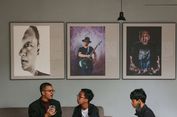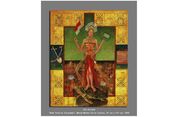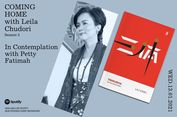Don't Judge Amy Winehouse by Her Demons
At that time she was fresh out of the Brit School, but even so, she struck me as an intelligent, immensely likeable 20-year-old on the cusp of womanhood.
‘The lunches here are like my mum’s food,’ she enthused. ‘You can’t beat home cooking!’
She spoke fondly of her parents, Mitch and Janis, emphasising that it was their Carole King and Sarah Vaughan records that made her a music fan in the first place.
Family, she stressed, was important: ‘When I’ve made all my albums, I’ll take a break. I’ll stop and have six kids. I’ll have a real clan and just watch them grow up.’
While excited about the future, she was strangely uninterested in fame. ‘I just want respect from other musicians,’ she told me. ‘I don’t even see myself as a singer. I’m a musician.’
She was also gleefully irreverent. Whereas more diplomatic, media-trained singers were masters of showbiz etiquette, she sounded off with little regard to the consequences.

She dismissed her peers, including Dido, Norah Jones and Madonna — all huge at the time — with heaping helpings of withering scorn. ‘Most of the stuff that passes for music today just isn’t challenging,’ she said.
For Amy, challenging meant piercingly autobiographical, and Frank, while patchy, embodied all the passions and contradictions of late teenage life.
One song, Take The Box, was about packing up an ex-boyfriend’s belongings; another, the smouldering Stronger Than Me, pilloried an emotionally-lightweight lover. Even the title — while a homage to her hero Sinatra — was also a sly reference to her candour.
Looking back, there were also signs of her vulnerability. Making records, she hinted, was like a form of therapy: ‘If I hadn’t written those songs, I’d have done something stupid.’





































